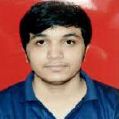International Journal of Image, Graphics and Signal Processing (IJIGSP)
IJIGSP Vol. 16, No. 1, 8 Feb. 2024
Cover page and Table of Contents: PDF (size: 969KB)
Non-Invasive Blood Group Prediction Using Optimized EfficientNet Architecture: A Systematic Approach
Full Text (PDF, 969KB), PP.81-95
Views: 0 Downloads: 0
Author(s)
Index Terms
Deep Learning, CNN, EfficientNet, ABO Blood Type
Abstract
This research work proposed a non-invasive blood group prediction approach using deep learning. The ability to swiftly and accurately determine blood types plays a critical role in medical emergencies prior to administering red blood cell, platelet, and plasma transfusions. Even a minor error during blood transfer can have severe consequences, including fatality. Traditional methods rely on time-consuming automated blood analyzers for pathological assessment. However, these processes involve skin pricking, which can cause bleeding, fainting, and potential skin lacerations. The proposed approach circumvents noninvasive procedures by leveraging rich EfficientNet deep learning architecture to analyze images of superficial blood vessels found on the finger. By illuminating the finger with laser light, the optical image of blood vessels hidden on the finger skin surface area is captured, which incorporates specific antigen shapes such as antigen ‘A’ and antigen ‘B’ present on the surface. Captured shapes of different antigen further used to predict the blood group of humans. The system requires high-definition camera to capture the antigen pattern from the red blood cells surface for classification of blood type without piercing the skin of patient. The proposed solution is not only straightforward and easily implementable but also offers significant advantages in terms of cost-effectiveness and immediate identification of ABO blood groups. This approach holds great promise for medical emergencies, military battleground scenarios, and is particularly valuable when dealing with infants where invasive procedures pose additional risks.
Cite This Paper
Nitin Sakharam Ujgare, Nagendra Pratap Singh, Prem Kumari Verma, Madhusudan Patil, Aryan Verma, "Non-Invasive Blood Group Prediction Using Optimized EfficientNet Architecture: A Systematic Approach", International Journal of Image, Graphics and Signal Processing(IJIGSP), Vol.16, No.1, pp. 81-95, 2024. DOI:10.5815/ijigsp.2024.01.06
Reference
[1]Bhagat, Swarupa Nikhil, et al. "Comparison between conventional and automated techniques for blood grouping and cross matching: experience from a tertiary care centre." Journal of laboratory physicians 7.02 (2015): 096-102.
[2]Mujahid, Adnan, and Franz L. Dickert. (2015), Blood group typing: from classical strategies to the application of synthetic antibodies generated by molecular imprinting Sensors 16, no. 1, PP: 51.
[3]Bharadwaja A., Saraswat P.K., Agrawal S.K., Banerji P., Bharadwaj S. Pattern of fingerprints in different ABO blood groups. Journal of Forensic medicine & Toxicology, 2004; 21(2): 49-52.
[4]Dean L. Blood Groups and Red Cell Antigens [Internet]. Bethesda (MD): National Center for Biotechnology Information (US); 2005. Chapter 2, Blood group antigens are surface markers on the red blood cell membrane. Available from: https://www.ncbi.nlm.nih.gov/books/NBK2264/
[5]Bai Y, Yang K, Yu W, Xu C, Ma WY, Zhao T. Automatic image dataset construction from click-through logs using deep neural network. In Proceedings of the 23rd ACM international conference on Multimedia 2015 Oct 13 (pp. 441-450).
[6]Dean L. Blood Groups and Red Cell Antigens [Internet]. Bethesda (MD): National Center for Biotechnology Information (US); 2005. Chapter 2, Blood group antigens are surface markers on the red blood cell membrane. Available from: https://www.ncbi.nlm.nih.gov/books/NBK2264/
[7]Gayathri, Thozhuthungal Haridasan, M. Rekha, Naizathul Akmha and K. Nithyakalyani. “Non Invasive Blood Group Detection Using Light Emitting Diode.” International Journal of Pure and Applied Mathematics Volume 119, No.15 (2018) 565-574.
[8]Gaurav S. Mehare1, Chetan G. Pinjarkar2, Anup V. Tembhe3, Prof. Nitin S. Khachane4 “A Non-invasive Way to Determine Blood Type Based on Image Processing” International Research Journal of Engineering and Technology (IRJET), Volume: 05 Issue: 04 | Apr-2018.
[9]Immaculate Stefi, Dr. Manasa Ravindra Walmiki and Pallavi. K “A Literature Survey on Non Invasive Blood Group Detection” International Research Journal of Education and Technology, Vlo 04, Issue01, January 2022.
[10]Panjivarna B, Saranya P, Anitha S, “Noninvasive Blood Group Detection”, Journal of Emerging Technologies and Innovative Research, May 2019 Vol: 6, Issue:5
[11]Bhuvaneswari K, Visithra M, Deepa S K "IoT Based Non-Invasive Approach for Blood Group Detection using Led, International Journal of Engineering Research & Technology (IJERT) ISSN: 2278-0181 Published by, www.ijert.org ETEDM - 2021 Conference Proceedings.
[12]Raj Bhagat, Snehal Marge, Prathamesh Deshmukh, Siddhesh Khanvilkar” Automatic Detection of Human Blood Group System using Deep Learning and Image Processing” International Research Journal of Engineering and Technology (IRJET), Volume: 08 Issue: 04 | Apr 2021.
[13]Balaji B, Jeyasakthi R, Julius, Fusic S, Rishwana M, Swathilakshmi P R K, Reshma K K "A novel approach of classifying ABO blood group image dataset using deep learning algorithm," 2021 International Conference on Computational Performance Evaluation (ComPE), 2021, pp.393-398, doi: 10.1109/ComPE53109.2021.9752278.
[14]G. Ravindran, T. Joby, M. Pravin, and P. Pandiyan, “Determination and Classification of Blood Types using Image Processing Techniques,” International Journal of Computer Applications, vol. 157, no. 1, pp. 12–16, Jan. 2017S.-H.
[15]Edward jaywalg; William li; Doug Hawkins; Terry Gernsheimer, Colette Norvy-Slycord, Shwetak N. Patel, Hema “Noninvasive Blood Screening of Haemoglobin using Smartphone cameras, (2016)”
[16]Vijay Kumar Patil, D. R. Ingle “Novel Approach for ABO Blood Group Prediction using Fingerprint through Optimized Convolutional Neural Network” International Journal of Intelligent Systems and Applications in Engineering, IJISAE, 2022, 10(1), 60–68
[17]Priyadharshini.R, “A Novel Approach in Identification of Blood Group Using Laser Technology,” International Journal of Research in Engineering and Technology (IJRET), vol.3, issue 11, pp 20-24, June 2014.
[18]https://www.waynesword.net/aniblood.htmhttps://www.brainkart.com/Article/ABOBloodGroup_21871/ [Last Accessed on October, 2022]
[19]https://www.brainkart.com/article/ABO-Blood-Group_21871 [Last Accessed on October, 2022]
[20]D. K. Dewangan and S. P. Sahu, "Deep Learning-Based Speed Bump Detection Model for Intelligent Vehicle System Using Raspberry Pi," in IEEE Sensors Journal, vol. 21, no. 3, pp. 3570-3578, 1 Feb.1, 2021, doi: 10.1109/JSEN.2020.3027097.
[21]Dewangan, D.K., Sahu, S.P., Sairam, B. et al. VLDNet: Vision-based Lane region detection network for intelligent vehicle system using semantic segmentation. Computing 103, 2867–2892 (2021). https://doi.org/10.1007/s00607-021-00974-2
[22]https://www.blood.co.uk/why-give-blood/blood-types [Last Accessed on October, 2022]




